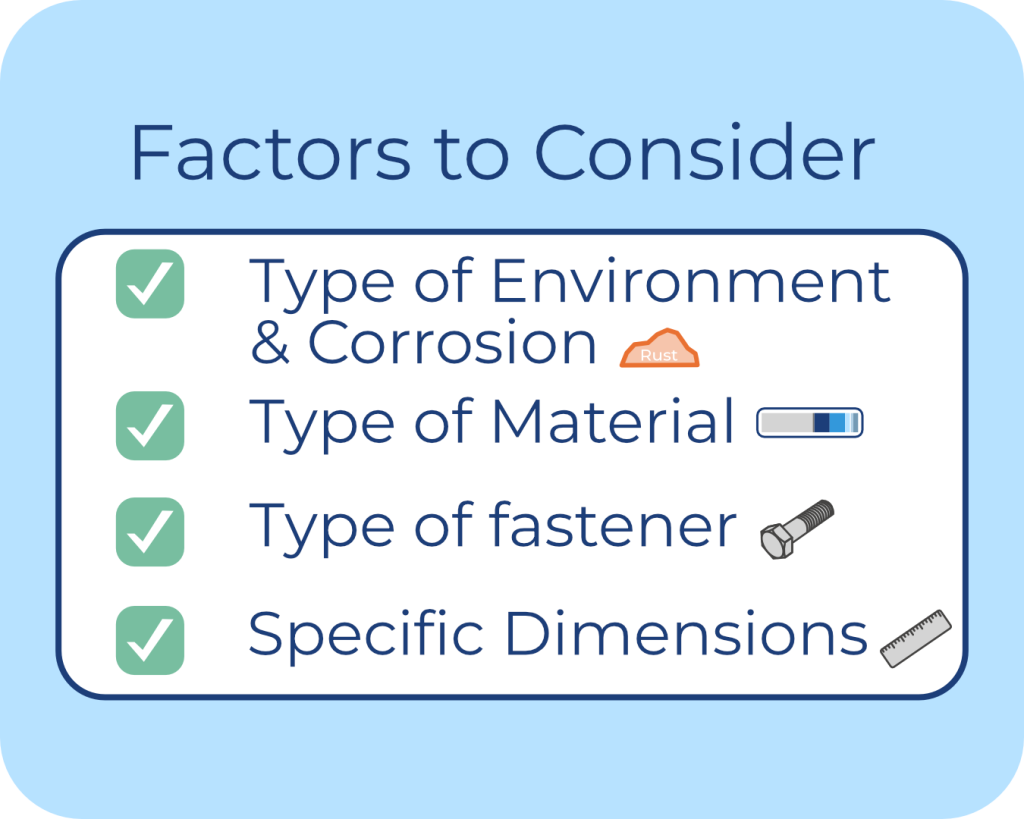

If you work in the manufacturing industry, you know the importance of fasteners in assembling your machinery and joining vital components.
There are several key factors to consider when choosing a fastener, including material compatibility, the strength required and the nature of the installation.
The type of fastener you’ll need depends on your specific business and facility needs. The best fasteners will provide ample strength while allowing easy disassembly for maintenance or upgrades.
You can choose from multiple fastener types that suit different applications. The most common types used in manufacturing include:
High-quality fasteners can be used with most materials, such as concrete, metal, plastic and wood. The critical factor is assessing whether the material you’ll work with is compatible with the fastener and how it can affect it.
The best fastener material for your purposes will depend on the working environment. The components you’re working with and the fastener should be compatible to help prevent costly downtime. Fasteners are commonly made of the following materials:
Thanks to their ability to withstand rust and chemical damage in harsh environments, stainless steel and nickel alloys generally work well with various materials, including different types of metal.
Some pairings of dissimilar metals, like carbon steel with copper, can result in galvanic corrosion. If you’re not sure whether this is a risk in your application, reach out to the fastener manufacturer.
It’s best to use a robust fastener that can withstand high stress as well as any risks unique to your application. Consider the fasteners’ steel grade and corrosion resistance, as well as the likelihood of facing stressors like very high or low temperatures and high loads.
Whether you need to join large, heavy parts or intricate ones requiring complex fittings, the strength of the fastener will determine its performance and durability. The versatility of fasteners makes them the ideal solution for industrial fittings,- but it’s essential to determine if they can withstand the load.
There are two things to consider — the load conditions and the maximum load the fastener can withstand. With the load conditions, determine if the load will be static or dynamic and if it’ll place stress against the jointed area or toward it.
You’ll also want to know the highest amount of weight the fastener can handle by reviewing the results of its proof load test. When exploring stainless steel fasteners versus other options, be sure you know what kind of force the components will face in your application so you can choose capable parts.
The fastener’s size is important for the installation and longevity of the attachment. Consider some of the following factors when exploring fasteners for manufacturing:
Proper fastener installation is key to achieving long-term results. Regular maintenance can also help you spot areas of concern early.
Here are some best practices to keep in mind when installing fasteners:
Routine fastener inspection and maintenance will help ensure a long-lasting installation. Try implementing the following:
By selecting the fastener fit for your application, installing it properly and performing regular inspections, you greatly increase your chances of seeing long-term performance with minimal issues.
At Nickel Systems, we take pride in providing specialty stainless steel and custom nickel alloy fasteners. With years of industry expertise, our team can select the best option for your purposes while providing you with individualized support. We’re a true stock company and deliver a quick turnaround time on orders.
To explore our stainless steel fastener selection, call us today at 610-632-1964 or complete this online form to get a quote. You can also email us at [email protected].